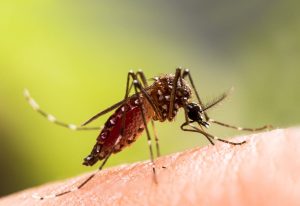“I FELT like a zombie. I couldn’t access my heart. I couldn’t access my emotions. I couldn’t connect,” actress Gwyneth Paltrow famously said in the February 2011 issue of Good Housekeeping. An article which, blew open the barely-cracked door on the realities of postpartum depression, and conversations surrounding the disease that too often occurred behind closed doors and the confines of doctors offices.
A year before, in 2010 the American Academy of Pediatrics formerly recommended that all pediatricians should begin screening their infant patients’ mothers for postpartum depression. Their findings explained that every year over 400,000 infants are born to mothers who are clinically depressed– with symptoms that extend beyond what’s typically considered the baby blues: Mood swings, weepiness, and negative feelings that affect between 70-80 percent of new mothers in the first weeks at home. Unlike PPD, the baby blues typically subside quickly as families adjust to the reality of a newborn, and if they don’t women are strongly encouraged to seek help for possible diagnosis.
With admissions from celebrities like Paltrow, and Brooke Shields who wrote a book chronicling her own struggle with depression, the details surrounding PPD became less taboo. As more women came forward reporting similar experiences, the disease became easier to diagnose, treat, and study.
Cut to: June 18, 2014, Cobb County, GA.
Cooper Harris, a 22-month-old boy was left strapped in his car seat for 7 hours on a hot summer day while his father, Justin Ross Harris, 33, went to work.
The events surrounding what many are calling a “death penalty case” are unfathomable.
Ross Harris is currently facing felony murder and second-degree cruelty to children charges. He has entered a plea of not guilty, maintaining that he simply “forgot” to drop his son off at daycare, a defense sinking rapidly under a mound of evidence that suggests his actions were premeditated. Prior to his son’s death, Cooper specifically switched him to a smaller car seat and set the straps to the lowest level, despite owning and previously using a larger, forward-facing car seat suitable for children his son’s age. His defense has claimed that the larger seat was in his wife, Leanna’s, car. A wife who, has not been charged but suspiciously Googled “child hot car deaths,” around the time surrounding Cooper’s passing.
Then there are the facts that Harris returned to his car once during the day, dropping off light bulbs purchased from Home Depot, that he visited a subreddit about “people who die,” and received a group email sent out by his son’s daycare on the 18th, which many suggest should have triggered Harris to realize his error. There is also evidence that Harris had been sexting 6 different women on the day of Cooper’s death, including a sixteen-year-old girl to whom he texted a picture of his erect penis. His defense will argue that the last bit is immaterial. That it’s possible to forget your child for 7 hours.
It’s not and it all speaks to Harris’ mental state. Cobb County police Detective Phil Stoddard has expressed concern that Ross Harris had a “second life,” that he is “living, with alternate personalities and alternate personas.”
For their part the prosecution has made clear their intention to prove that Harris “wanted to live a child-free life.”
He’s been called heartless, without emotion, a monster.
However the events of the case are so disturbing and bizarre that we have to wonder what else was going on?
The negligence claimed by Harris is impossible to comprehend as valid. So much so, that whether he is proven innocent or guilty, there remains the potential that something is incredibly psychologically wrong. Something that we’re not talking about because he’s a monster, and because he’s a man.
Andrea Yates, the Texan mother who gruesomely drowned her five children in the bathtub, holding their heads under water while they struggled and then placing their limp, wet bodies on her bed, was repeatedly categorized as ill and depressed. She was found not guilty by reason of insanity. Since her admission Yates has been in the care of a mental hospital treating her for postpartum psychosis – the most severe and rarest form of postpartum depression. She currently resides in Kerrville State Hospital in Kerrville, Texas.
Likewise many, including her defense, argued that Ebony Wilkerson, the pregnant South Carolina woman who attempted to kill her three small children by driving her minivan into the ocean this past March in Florida, is mentally ill and in need of psychiatric help. In April of 2014 her charges were dropped from 1st to attempted 2nd degree murder, and she has been allowed to receive in-hospital psychiatric care until a doctor deems her fit to return to jail.
This “ill” classification does not exonerate these women of their crimes, but when the public and the state frame murder through the lens of depression or illness, the conversation surrounding the crime is invariably different. Harris may have intentionally murdered his son, but is it not important to ask if we are casually overlooking PPD because he’s the father?
In 2010, the same year pediatricians made their recommendation for mothers, The Journal of the American Medical Association published a meta-analysis where researchers reviewed 43 studies with over 28,000 participants. They found that 10 percent of men had prenatal or postpartum depression, more than double the rate of men who suffer from depression in the general population — 4.8 percent. Symptoms of depression unique to men included: violent behavior, impulsiveness and risk taking, like reckless driving and extramarital sex.
After conducting a study in 2008, Oxford University psychiatrist Paul Ramchandani told Slate magazine: “Depression affects how fathers interact with their children. They may be more irritable, they may be more withdrawn. That might affect children’s understanding of emotions and how they learn to regulate their own emotions.”
In the Slate piece, “Dads Get Blue Too,” by Emily Anthes, she wrote: “Mood problems may also influence fathers’ ability to work, affect the strength of their marital relationships, and more — any of which could put their kids at risk.”
At risk. Cooper Harris was certainly at risk. Why remains unclear.
Without question PPD in men remains understudied and highly controversial– a theoretical ailment according to some not grounded in hormonal change. However, there is no template for postpartum depression, not even in women. Symptoms sometimes manifest well past a child’s first birthday, and they take on many different forms– for instance, a mother who doesn’t want to hug her child, panic attacks and, in severe cases, violence. The New York Times recently published a piece illuminating how postpartum mental disorders can emerge much later than expected and include a broader range of symptoms.
Like the women, none of this would excuse Harris’ actions, his conduct was without question reprehensible and punishable. But there is something lingering and unsettling in his face: perhaps the look of a guilty man who doesn’t understand why he did something unimaginable.
His gender shouldn’t make moot the need to open the dialogue about men and depression, especially during periods of postpartum unrest. If a person isn’t looking for the warning signals it’s very easy to miss them.
And if they’re left untreated, the consequences are dire.


-300x200.jpeg)









-300x241.jpeg)




